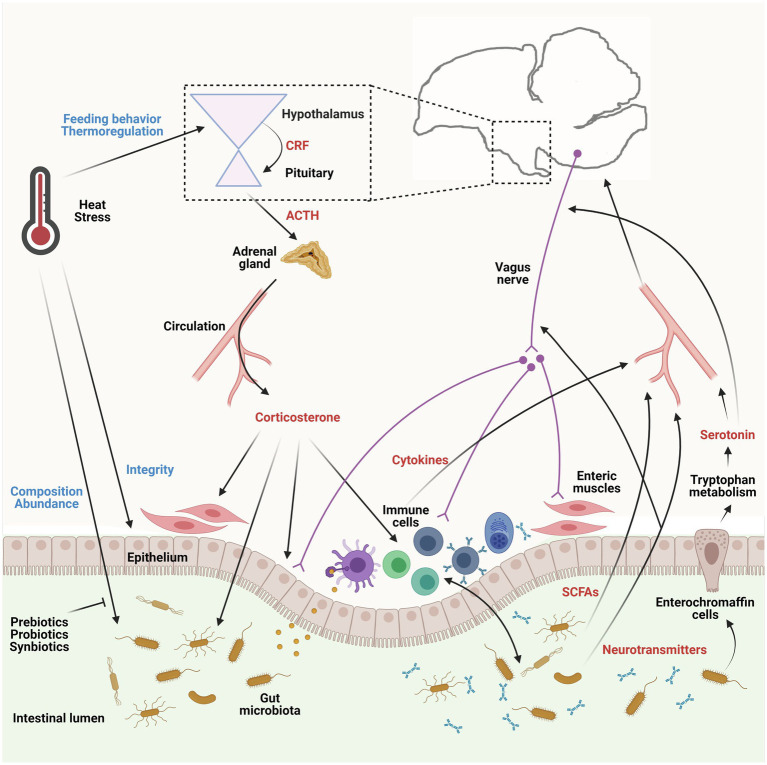Figure 1.
Influences of heat stress on the microbiota-gut-brain axis (MGBA) and the pathways involved in the axis in chicken. The gut microbiota communicates with the gut-brain axis through several pathways, including neural, immune, and endocrine signaling. The gut microbiome produces neurotransmitters, such as serotonin, which can trigger responses of the vagus and enteric nervous system, and short-chain fatty acids (SCFAs), which can nourish the host and regulate the host’s brain activity and behaviors. Gut microbiota also stimulates intestinal immune cells to generate and secrete cytokines to induce immune response locally and systemically and modulate the brain. In turn, the brain utilizes the same pathways to alter the gut microbiota, especially their composition and abundance, under circumstances, such as heat stress. Heat stress can influence the MGBA both directly and indirectly. The hypothalamic-pituitary-adrenal axis is activated by heat stress and facilitates the production of corticosterone in birds, which further affects enteric cells and gut microbiota. The utilizations of prebiotics, probiotics, or symbiotics are promising approaches to alleviate the adverse effects of heat stress. ACTH, adrenocorticotropic hormone; CRF, corticotropin-releasing factor. This figure is adapted from previous publications (Cryan and Dinan, 2012; Aoki et al., 2017) and created with BioRender.com.

